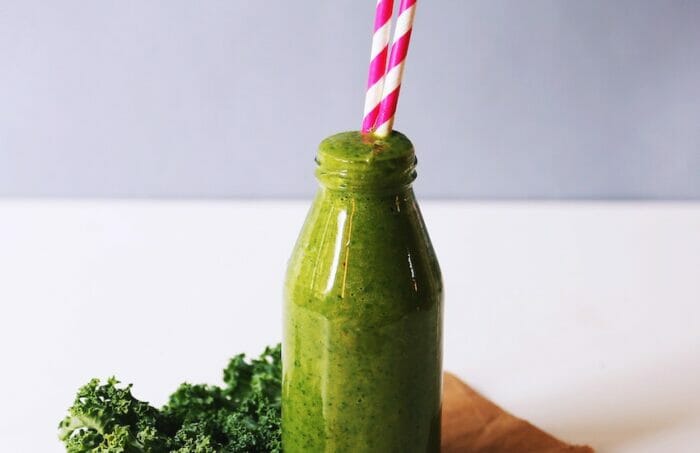There are many ways to improve memory, but some methods are more effective than others. As we think about improving our memory, it’s important to consider the way we treat our brain. If our body is full of unhealthy inflammation our brain will likely be foggy and unable to retain information optimally.

Diet, exercise, and sleep are among the most important factors that are able to effectively create mental associations between people, places, and things that you find important to remember.
Gut Health
The gut is often referred to as the ‘2nd Brain’ because it’s home to millions of neurons that help to regulate mood and memory. Good gut health has been linked to better memory retention, and research suggests that a probiotic diet can actually improve cognitive function.
Probiotics are live microorganisms that are found in fermented foods like yogurt and kimchi. If you want to optimize what kind of probiotic your gut needs it’s also great to find the best probiotic for your specific gut. These friendly bacteria help to keep the digestive system healthy and improve the absorption of nutrients. A diet rich in probiotics has been shown to support good gut health and improve memory retention.
Exercise Regularly
Exercising regularly is one of the most effective things you can do to improve memory. Exercise increases blood flow to the brain, which promotes the growth of new blood vessels and helps to keep existing ones open.
This increased blood flow delivers more oxygen and nutrients to the brain, which helps to protect cells and promote neuroplasticity. Neuroplasticity is the brain’s ability to form new connections and remodel existing ones, which is essential for learning and memory.
Exercise also helps to reduce stress and improve sleep, both of which are important for memory. So if you want to boost your memory, make sure to get moving!
Nutrient Balance
A balanced diet is critical for maintaining a sharp memory. The nutrients in food help to support cognitive function and protect the brain from damage. For instance, omega-3 fatty acids are essential for brain health, and they can be found in foods like salmon, tuna, and walnuts.
Meanwhile, antioxidants help to reduce inflammation and protect brain cells from damage. Good sources of antioxidants include fruits, vegetables, and dark chocolate. Finally, B vitamins are important for energy production and cognitive function. Natural supplements like Nootropics, fish oils, turmeric, and cocoa also boost memory consolidation.
These vitamins can be found in meats, poultry, fish, and eggs. By eating a well-rounded diet, you can give your memory a boost and keep your mind sharp as you age.
Sleep
Most people know that getting a good night’s sleep is important for overall health and well-being. But did you know that sleep also plays an important role in memory? Studies have shown that sleep helps to consolidate memories, making them easier to recall later.
During sleep, the brain replay activities from the day in order to solidify them in the memory. This process is thought to help improve both long-term and short-term memory. So if you’re looking to boost your memory, make sure you’re getting enough shut-eye!
Conscious Breathing
The Breathe-meditate technique is known as mindfulness meditation. It involves the practice of inhaling and exhaling while deliberately engaging your brain in a relaxed state.
Researchers have found that mindfulness meditation may help to increase blood flow and electrical activity in the hippocampus, part of the brain responsible for memory.
In another study, older adults who did an eight-week program of mindfulness meditation saw improvements in both their verbal memory and their working memory. Clearing the mind with meditation may help improve the functioning of the hippocampus and the prefrontal cortex responsible for executive function.

Challenge Your Brain
One way to improve your memory is to carry out different intellectual challenges or memory tests. This can involve something as simple as trying to memorize a list of items, or it could be something more complex like solving a puzzle.
By stimulating your brain in this way, you can help to improve your memory and recall ability. Additionally, research has shown that regular exercise can also help to improve memory function and help to reduce the risk of developing Alzheimer’s disease and other forms of dementia.
So if you’re looking for ways to boost your memory, be sure to challenge your brain with new tasks on a regular basis and stay active.
Proper Hydration
Excessive alcohol consumption can have a negative impact on memory function and retention. In a recent study, scientists found that people who drink frequently are more likely to experience memory decline than those who abstain from alcohol.
The study’s authors believe that alcohol damages the brain’s ability to store memories, making it more difficult for people to recall information. While the occasional glass of wine may not cause any harm, the researchers advise against drinking too much if you want to keep your memory sharp.
As we hydrate it’s important to find the best water to drink for health. Most water is either stripped of nutrients or full of chemicals that may be putting us in a state of fog. Being mindful of what we consume will only get us closer to developing a better memory and clear mind. It is not always easy or comfortable to choose the healthy option but it will certainly help our minds in the long run.
The human memory is a precious part of every individual’s existence. It’s what we rely on to remember the important moments in our lives, and it can be frustrating when it starts to let us down. There are plenty of things you can do to improve your memory and live in an optimal state.
By being conscious of our diet, exercise, and sleep patterns, we can retain and improve the power of our memory, focus, and ability to concentrate.
Want a modern home on a budget?
Subscribe and get this FREE GUIDE to learn the tips, tricks, and my best resources to create a family-friendly modern home on a budget!


